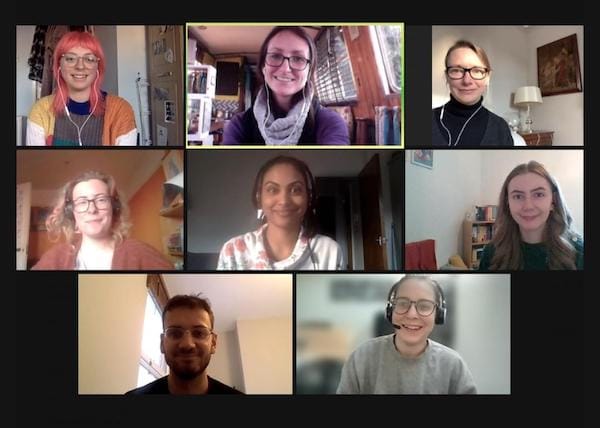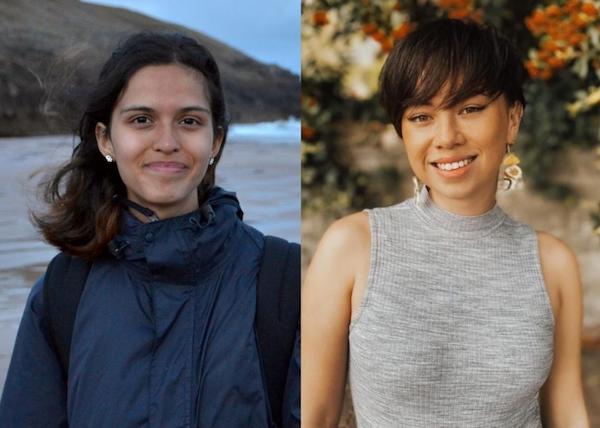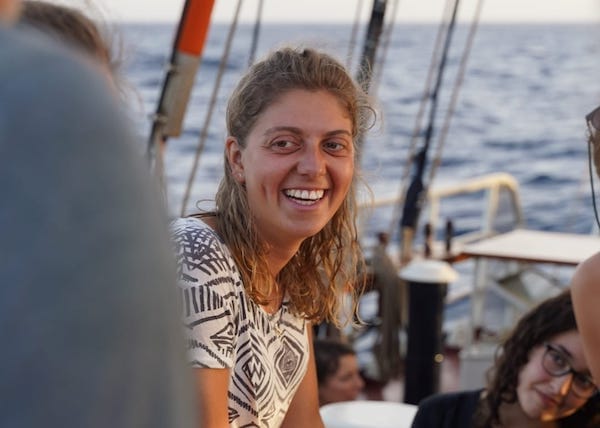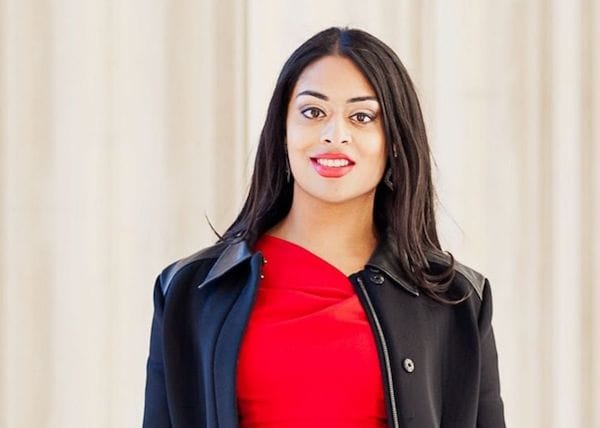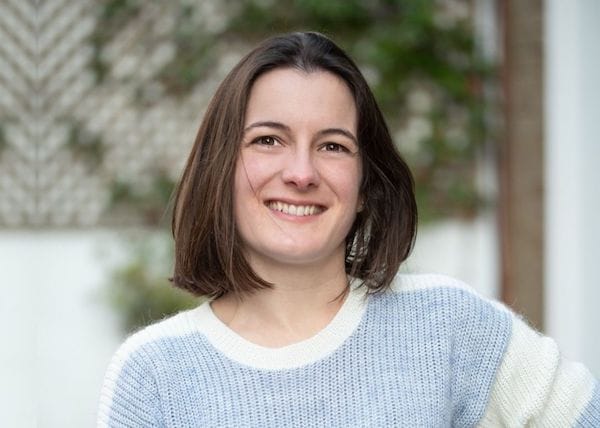This is episode nine of our 2021 podcast series. Listen to the episode here and find other episodes and previous series here.
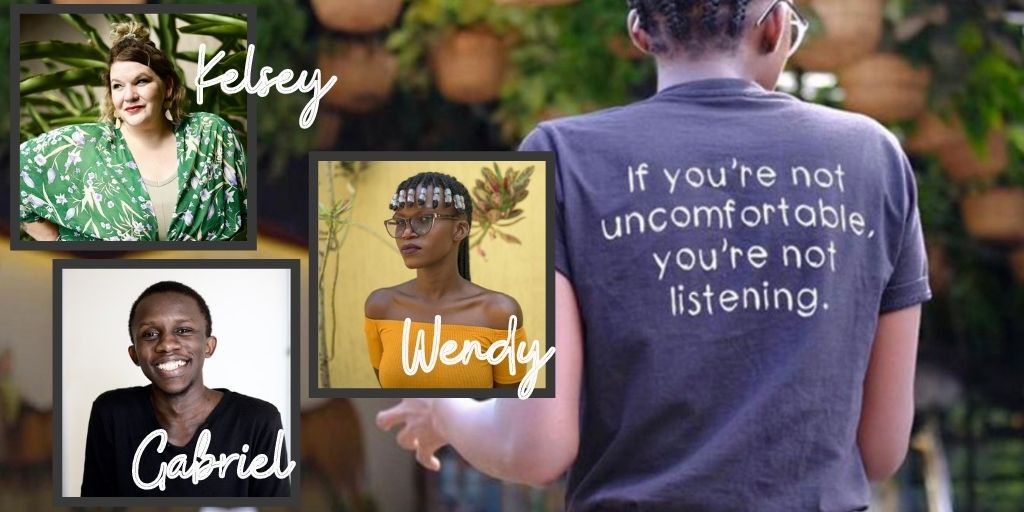
A lot of our work at Flight Free UK is about fighting against the injustice of climate change and working out how we can make a difference in the world.
This month we meet the team at No White Saviors to discuss voluntourism and the climate challenges facing Uganda.
Voluntourism is going to volunteer on a short-term basis in another country. Before the pandemic there were an estimated 10 million international volunteers a year. The most popular destinations are sub-Saharan Africa (with 17% of volunteers), Latin America (23%) and East Asia and South Asia (12%).
Our team member Alan has some personal experience of voluntourism:
“When I finished university, I spent some time volunteering in Uganda. We spent two weeks helping to build a school, then painted walls and dug a latrine at another site. There were 30 people there on the trip and we each had to raise £600 for the charity as well as raise money to cover our expenses including flights which cost about £700.”
“Giving the money to the charities was probably the most worthwhile part of it, as the labour was very easy and very unskilled.”
“I was quite excited to go there. I don’t think I was naive enough to feel that I was saving Africa or being a hero but I did think that I was doing a good thing. In retrospect I don’t think I added much value to myself or others.”
No White Saviors is a group of Ugandan professionals and activists. They are frustrated by the way volunteers perpetuate inequality in Uganda and they want to make sure that Ugandans are the heroes of their own story.
Lubega Wendy
I mostly handle the communications for No White Saviors. I am Pan African and am about rethinking the education system. I am also an ethics and human rights activist.
Kelsey Nielsen
I am the one white American team member – a White Savior in recovery. My main goal and role on the team is white accountability. That starts with holding myself accountable for past and present harm and working to rectify it.
Rwothomio Gabriel
I mostly do social media for the team. I am Pan African like Wendy – a lover of the continent and a defender of it. Pan Africanism is a love for the African continent and African people and the ability to place Africa first above everything.
Flight Free UK
What are the issues caused by voluntourism?
Wendy
The mentality of anything goes, the othering. I could be working in a mall in the UK and decide to fly to Uganda to teach without qualifications and the right skill set. By doing that I am othering the people I am going to see. Most people don’t realise they are doing this. They see the stereotype of what is associated with Africa – civil wars, animals – and they think, I can make a difference, I can save those people. At the end of the day do you see yourself as better than them?
Gabriel
A lot of people have the mentality of being the saviour. At best you appear to serve the community but the foundation is that you are serving yourself. By going into a community for a short time you are creating a system of reliance – people rely on you or on other volunteers that come in and out, and can never quite serve themselves. Individuals who come are highly ingrained in ‘whiteness’ – not just the colour of skin, but the ideology of superiority and having power over another being.
"A lot of people have the mentality of being the saviour. At best you appear to serve the community but the foundation is that you are serving yourself."
Flight Free UK
The mantra of No White Saviors is, ‘If you’re not uncomfortable you’re not listening.’ This was quite an uncomfortable conversation for Maggie. For Alan, he realised that he’d done all the stereotypical things while he was volunteering in Uganda. At the time he thought he was doing a good thing. At no point during the planning and fundraising had anyone suggested that it might not be a good thing.
Wendy
Good intentions are not good enough. You need the skill and to offer something long term. Are you here to create long term ethical and sustainable development? Are you here to work with the communities, are you going to let them lead?
Kelsey
When I started, I came and volunteered in an orphanage. It was pretty much the worst, most stereotypical thing you can do. As I learned more about child development and voluntourism, I understood that this was not something I should have been doing. There are still programmes encouraging people to come on short term trips to volunteer with kids and orphanages, even though these children are struggling with attachment and are struggling to form healthy bonds with the adults around them.
Flight Free UK
In addition to these difficulties, there is the climate impact of travelling to other continents. People who feel that they are on board with the flight free ethos might make an exception for volunteering because it’s seen as virtuous. But emissions are emissions, whatever the reason for them.
The emissions for a return flight to Uganda per passenger are 1.72 tonnes CO2 according to flightemissionmap.org. The average emissions for someone living in Uganda is about 0.18 tonnes – about 10 times less.
We asked the team, what are the effects of climate change in Uganda?
Gabriel
The main one is temperature rise. Growing up in Uganda and Kampala, experiencing temperatures above 29º was very rare.
Also irregularity in the seasons. We do not have seasons as such, we just have rainy or sunny. With climate change, we are being exposed to higher temperatures and we are having irregularity in weather which adversely affects farming and other social and economic activities.
Wendy
As children, we could predict when it would be sunny and when it would be rainy. You can’t predict it anymore. When it rains it rains really hard. The impact affects the farming business. A lot of Ugandan farmers are small scale and they rely on rainfall. Because of the uncertainty, the yields are not the same. It’s had a very negative impact upon farming here in Uganda. What we see right now is nothing compared to what might happen unless the government does something about it.
Flight Free UK
In rich countries, we sometimes get the impression that it’s only us who worry about climate change. But Wendy and Gabriel were very clear that they are very concerned about climate change. We don’t hear enough from people in low income countries in this conversation.
“Wendy and Gabriel were very clear that they are very concerned about climate change. We don’t hear enough from people in low income countries in this conversation.”
Wendy
Uganda as a country has a very small carbon footprint, but often it’s made to look like people in Uganda do not care about the environment. E.g. youth climate activist Vanessa Nakate was cropped out of a photo by Associated Press (the photo was of Vanessa alongside other climate activists including Greta Thunberg. You can find the story here).
We as Ugandans love the environment. We live with nature. It’s in our music. So for the global north to think we are not well suited for this conversation is quite sad.
“It’s made to look like people in Uganda do not care about the environment. We love the environment. We live with nature. It’s in our music.“
Gabriel
At the end of the day we are the ones experiencing the most damage. It leaves you asking why we are being excluded from the conversation.
When it comes to the fight against climate change, a lot of the change is focussed on the African continent and other places in the global south. For example, there was an article that stated that changing wood burning stoves in sub-Saharan Africa would offset the emissions of Belgium or Florida.
The fact that one country is being compared to the total emissions of sub-Saharan Africa, and the change is being focussed on sub-Saharan Africa shows how the whole climate change thing is very structured to let the global north continue playing while the global south does the homework. I’m not defending wood stove burning because it is very unhealthy, but I am certain that never once did it cause the oceans to be on fire. We need to address the capitalist industries in the global north.
“The whole climate change thing is very structured to let the global north continue playing while the global south does the homework.”
Flight Free UK
We hear about airlines offering offsets all the time. It’s not that the woodstove project is bad – it’s good for people’s health, especially women’s health – but that can’t be an excuse for rich countries to put off reducing their own emissions.
No White Saviors are clear that voluntourism isn’t good for Uganda, but is it good for the volunteer? Is it worthwhile as an educational experience? For Alan, it wasn’t a great insight into the problems around the world that you can’t learn elsewhere e.g. on TV and through charities like Comic Relief.
A lot of people from the west and the global north see going to countries such as Uganda as a part of their own personal development, but there’s not a country in the world that exists for the sole purpose of letting westerners have revelations about themselves.
Kelsey
A lot of the time, volunteering is self-serving for the person going – it’s for an experience, to gain perspective, to be grateful for what we have. It’s an illusion that it’s changing the reality and the situation for the people in the community you are going to see. If someone has a unique skillset such as a medical professional, there might be a place for them, but often that’s not the case: the people who typically volunteer are unqualified, young people who want to ‘make a difference’.
It might be more helpful to stay home and raise funds for an organisation that is grassroots and community led. If we’re really dedicated to the community and the cause, we should be more worried about the impact we’re making rather than what we’re getting out of it.
“Volunteering is often self-serving. It might be more helpful to stay home and raise funds for an organisation that is grassroots and community-led.”
Flight Free UK
Instead of raising money for a plane ticket, we could use that money directly for community groups in Uganda.
How does this square with allowing young people to access life changing experiences? For Alan, it wasn’t a particularly life-changing experience for him or the other people on the trip. Most people didn’t make much of an effort to learn much about the country they were in.
There’s no doubt that giving your time to others has a benefit to you and can be a life changing experience but there are plenty of other ways we can have that experience closer to home. Culturally it’s a better match and most importantly it doesn’t involve any flights.
Destination of the month
Maggie chooses The Conservation Volunteers. One of the benefits of volunteering with something local is that you can do it regularly.
Alan chooses the RSPB in the Aire valley just outside Leeds.
Thank you so much to No White Saviors for joining us. To find out more, go to their website here.
To find out more about Vanessa Nakate, she is on this BBC video, the Climate Question.
Listen to the full episode here and find other episodes and previous series here.
Voiceover: L. Sophie Helbig. Soundtrack: Chasing Balloons by Yeti Music.
